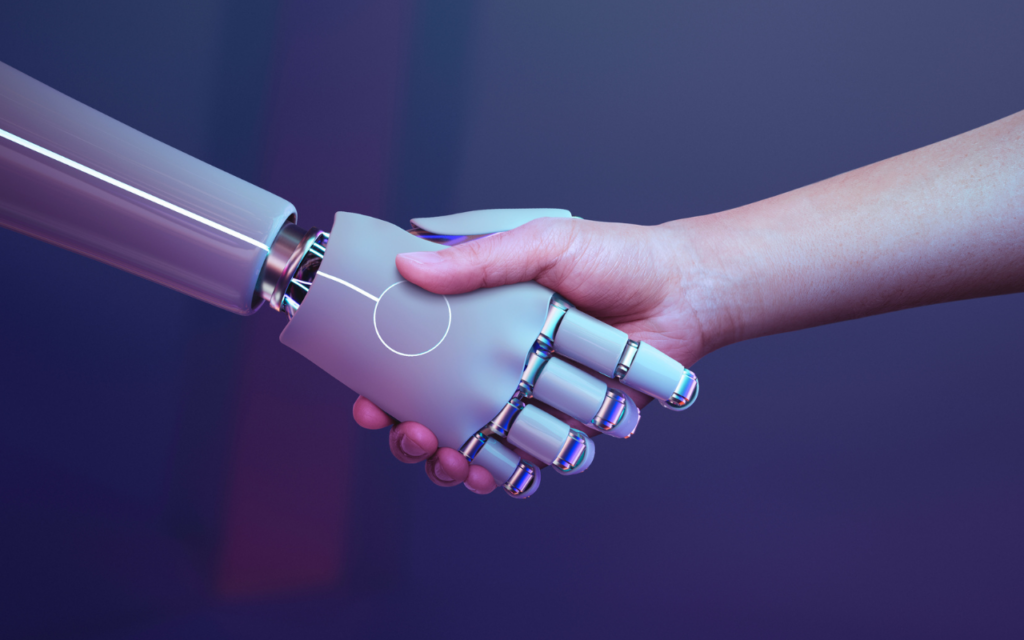Artificial intelligence (AI) is transforming our world, and the workplace is no exception. From automating repetitive tasks to providing data-driven insights, AI is reshaping the way we work. But what exactly does this mean for the future of jobs and the skills we need to succeed?
Artificial intelligence (AI) is rapidly transforming our world, and the workplace is at the forefront of this change. AI is automating repetitive tasks that were once done by humans, freeing us up to focus on more complex endeavors. In addition, AI is providing data-driven insights that can improve decision-making, optimize processes, and boost productivity. However, this begs the crucial question: how will these advancements impact the future of jobs and the skillset required to thrive in ?
AI: A Powerful Ally, Not a Replacement
Fear of AI replacing human workers entirely is a common concern. However, the reality is far more nuanced. AI excels at tasks that are routine, data-driven, and require minimal creativity. This frees up human workers to focus on their strengths: critical thinking, problem-solving, complex decision-making, and interpersonal skills. AI becomes a powerful ally, augmenting human capabilities and enabling a more collaborative work environment.
Boosting efficiency and productivity
One of the most immediate benefits of AI in the workplace is its ability to streamline processes and enhance productivity. Repetitive tasks that were once handled by human employees can now be automated by AI-powered tools. This frees up valuable time and allows employees to focus on more strategic endeavors.
For instance, AI-powered chatbots can manage customer service inquiries, reducing wait times and improving customer satisfaction. In the finance sector, AI algorithms can automate data entry and generate reports, minimizing human error and expediting financial processes. Across industries, AI is proving its mettle in automating administrative tasks, scheduling meetings, and managing calendars.
Data-Driven Decision Making
AI is a master of data analysis. It can sift through vast quantities of information, identify patterns, and generate insightful reports. This empowers businesses to make data-driven decisions, from optimizing marketing campaigns to predicting market trends. Imagine a sales team equipped with AI-powered insights into customer behavior, allowing them to personalize their approach and close more deals.
AI and the Future of Jobs: Reskilling and Upskilling
As AI continues to integrate into the workplace, it will undoubtedly automate some jobs, but it’s important to remember that it will also create new ones. The World Economic Forum estimates that while 85 million jobs could be replaced by AI by 2025, a staggering 97 million new jobs will be created.
While technical skills related to AI and automation will be valuable, a renewed emphasis on core human skills to collaborate effectively with AI tools will be paramount.
The key lies in adaptation. The future workforce will require a different skillset, one that focuses on collaboration, critical thinking, creativity, and problem-solving. Employees will need to be adaptable and willing to continuously learn and upskill themselves to thrive in this evolving landscape.
Here are some key skills to focus on:
Critical Thinking and Problem-Solving: AI can’t solve problems that require outside-the-box thinking. The ability to analyze situations, identify root causes, and develop innovative solutions will be crucial.
Adaptability and Lifelong Learning: The pace of technological change is rapid. The ability to learn new skills and adapt to changing work environments will be essential.
Communication and Collaboration: Strong communication and collaboration skills will be vital for working effectively with AI and human colleagues alike.
Creativity and Innovation: AI excels at routine tasks, but it lacks human creativity. The ability to think creatively and generate innovative ideas will be highly sought-after.
Data Literacy: As data becomes increasingly central to decision-making, understanding how to interpret and utilize data will be a valuable asset.
AI and the Future of Work:The Human-AI Partnership
While some fear that AI will lead to widespread job losses, the reality is more nuanced. AI is more likely to automate routine tasks, freeing up human employees to focus on higher-level activities that require creativity, critical thinking, and social skills.
The future of work will likely involve a more collaborative approach; we’ll see a collaborative environment where AI complements and augments human capabilities.
Here’s how this partnership might look:
- AI as an Assistant: AI can handle administrative tasks and provide real-time data analysis, freeing up human employees to focus on complex problem-solving and strategic thinking.
- Enhanced Creativity: AI can analyze vast amounts of information and generate creative ideas, which humans can then refine and implement.
- Personalised Learning: AI-powered learning platforms can personalize training programs for employees, catering to their individual needs and learning styles.
Preparing for the AI-Powered Workplace
As AI continues to evolve, businesses and individuals need to be prepared for the changing landscape of work. Here are some key strategies:
- Upskilling and reskilling: Employees will need to develop new skills to thrive in an AI-powered workplace. This may involve learning to work alongside AI, developing data analysis skills, or focusing on areas where human skills are irreplaceable, such as communication and problem-solving.
- Focus on Human-centric Skills: While AI excels at data analysis, it cannot replicate human skills like empathy, critical thinking, and creativity. Businesses should invest in training programs that help employees develop these essential skills.
- Building an AI Strategy: Businesses need to have a clear understanding of how AI can benefit their organization. This involves identifying tasks that can be automated, developing a plan for AI implementation, and ensuring that AI systems are used ethically and responsibly.
By taking a proactive approach, businesses can leverage the power of AI to enhance their workforce, boost productivity, and stay ahead of the curve in the ever-evolving landscape of work.
The Rise of AI: A Call for Collaboration
The rise of AI in the workplace presents both challenges and opportunities. By embracing AI and focusing on human-centric skills, businesses and individuals can prepare for the future of work and harness the power of AI to achieve greater efficiency, innovation, and success.
Conclusion
The rise of AI in the workplace is not something to fear. By embracing AI and fostering a human-AI partnership, businesses can unlock new levels of efficiency, productivity, and innovation. The key lies in focusing on reskilling and upskilling the workforce, ensuring a smooth transition into this new era of work. By working together, humans and AI can create a more productive, efficient, and ultimately rewarding workplace experience.










